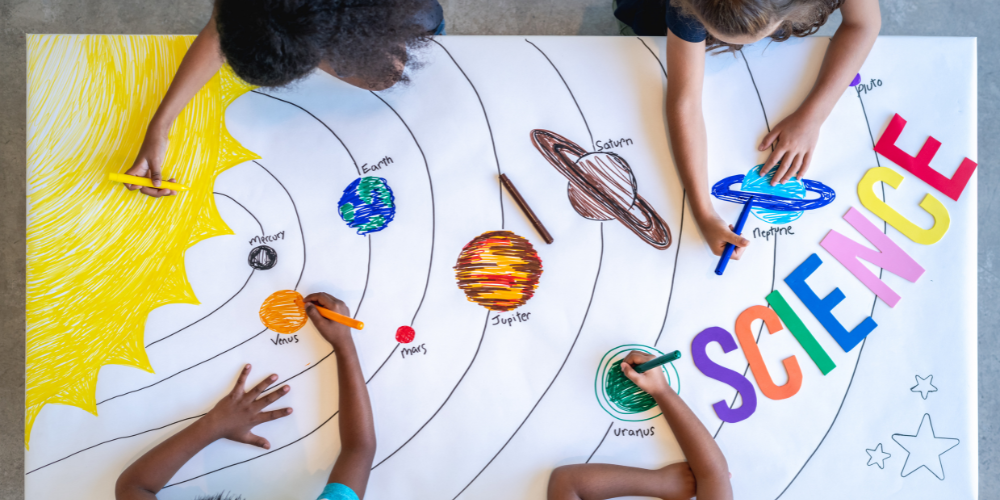New Zealand’s education system is a reflection of the country’s commitment to inclusivity, diversity, and high-quality learning. It is designed to cater to a wide range of abilities, beliefs, ethnic backgrounds, income levels, and teaching philosophies. With consistent standards and a focus on providing excellent education at all levels, New Zealand’s education system is a great example of progressivism.
Three Levels of Education in New Zealand
1. Early Childhood Education: Nurturing Tomorrow’s Leaders
Early childhood education (ECE) in New Zealand is an essential foundation for children’s development. It isn’t compulsory, but an impressive 96.8% of children attend ECE centres. These early learning environments instil confidence and curiosity in children, setting the stage for success in later schooling.
The government subsidises ECE, making it accessible to all children for up to six hours a day, totalling 30 hours per week.

2. Primary and Secondary Education: The Foundation of Knowledge
Primary and secondary education in New Zealand, spanning ages 5 to 19, is delivered primarily through state schools, which are government-owned and funded. Education is free for New Zealand citizens and permanent residents during this period. Compulsory schooling is required from age 6 to 16, and many children start school at age 5. However, some schools offer cohort entry, where children start school together at the beginning of each term.
The education system comprises 13 year levels, starting with Year 1 and ending with Year 13. Primary education spans Year 1 to Year 8 (approximately 5–12 years old) or Year 0 to Year 6 if it is a ‘contributing’ primary school, while secondary education covers Year 9 to Year 13 (approximately 13–17 years old). Intermediate schools typically admit students from ‘contributing’ primary schools for Years 7 and 8, but there are instances where ‘junior high schools’ extend their programs to cover Years 7 to 10 or composite schools that encompass Years 7 to 13. New Zealand’s schools emphasise a well-rounded education, with a focus on core subjects, character development, and embracing cultural diversity.
3. Further Education: Expanding Horizons
New Zealand offers various pathways for further education, catering to different interests and career aspirations:
- Technical and Vocational Education: Senior secondary students can specialise in vocational learning, providing a solid foundation for entering the workforce or pursuing higher education. Programs like Youth Guarantee and trades academies offer vocational training opportunities.
- Institutes of Technology and Polytechnics: These institutions provide professional and vocational education and training, offering a range of programs from introductory studies to degrees.
- Industry Training Organisations: Representing specific industries (e.g., agriculture, construction), these organisations offer government-funded training and qualifications in partnership with industry stakeholders.
- Private Training Establishments: These institutions offer focused vocational courses at certificate and diploma levels, covering diverse fields such as travel and tourism.
- Universities: New Zealand boasts eight state-funded universities with a typical fee of around NZ$10,000-25,000 per year for domestic students from Australia and New Zealand while international undergraduate students can expect to pay around NZ$22,000-32,000, according to QS Top Universities. Each of these universities is renowned for its academic excellence and international recognition. These institutions offer a wide range of degree programs and collaborate globally on research and teaching initiatives.
Unique Aspects of New Zealand’s Education System
The New Zealand education system is indeed unique in several aspects, including its curriculum, and emphasis on outdoor activities, and sports.
1. Holistic and Inclusive Curriculum
• Te Whāriki: New Zealand’s early childhood education curriculum, Te Whāriki, stands out for its holistic approach. It emphasises the importance of fostering well-rounded development in young children, focusing not just on academic skills but also on social, emotional, and physical development. Te Whāriki recognises the significance of play-based learning in early childhood, allowing children to explore their interests and learn through hands-on experiences.
• The New Zealand Curriculum (NZC): The curriculum for primary and secondary education in New Zealand, NZC, takes a unique approach by promoting not only academic excellence but also values, key competencies, and cultural diversity. It encourages critical thinking, creativity, and active participation in the community.

2. Outdoor Activities and Environmental Education
- The Great Outdoors: New Zealand’s breath-taking natural landscapes serve as an integral part of its education system. The country’s commitment to outdoor education is evident in its “Education Outside the Classroom” (EOTC) initiatives. Schools often organise trips to explore national parks, beaches, and forests, providing students with hands-on experiences in nature. This fosters an appreciation for the environment, teaches essential outdoor skills, and promotes physical fitness.
- Environmental Education: New Zealand places a strong emphasis on environmental education, teaching students the importance of sustainability and conservation. Many schools have their own gardens or participate in local community environmental projects, ensuring that students develop a strong sense of responsibility toward the environment.
3. Sports and Physical Education
• Kiwi Sports Culture: New Zealanders have a strong sports culture, with rugby, cricket, and netball being some of the most popular sports. The New Zealand education system integrates physical education (PE) and sports into the curriculum, promoting a healthy and active lifestyle from an early age.
• Inter-School Competitions: Schools in New Zealand actively engage in inter-school sports competitions, fostering a spirit of sportsmanship, teamwork, and healthy competition among students.
• Focus on Wellbeing: The emphasis on physical education is not solely about competition but also about promoting the overall well-being of students. Physical activity is recognised as an essential component of mental and physical health.
New Zealand’s education system is a testament to the nation’s values of diversity, inclusivity, and quality. From early childhood education that nurtures young minds to a well-rounded primary and secondary education system, and a wide array of further education opportunities, New Zealand’s commitment to excellence shines through at every level. As New Zealand’s education institutions continue to collaborate on research and development, they play a crucial role in shaping not only the future of the nation but also the global landscape of education.
Note: Woburn is also assisting people looking to immigrate to New Zealand with potential study options, enrolment process, and Student Visa arrangements. If you are looking for study options to immigrate to New Zealand, please reach out to us. We possess the knowledge and experience to pave your immigration pathway.


